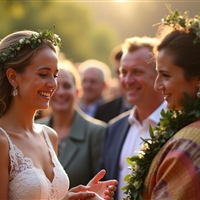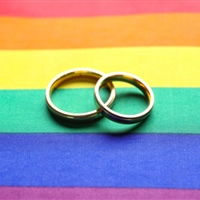
Planning your dream wedding involves countless decisions, from choosing the perfect venue to selecting the right flowers. However, amidst all the excitement, it’s crucial to understand the legal requirements that make your marriage official in New Zealand. Your celebrant plays a vital role in ensuring your union is legally recognised, and knowing what they need to do can give you peace of mind on your big day.
Understanding Marriage Celebrants in New Zealand
In New Zealand, only authorised marriage celebrants can legally perform marriage ceremonies. These include ministers of religion, Justices of the Peace, marriage celebrants appointed by the Registrar-General, and Family Court judges. Your chosen celebrant must be properly authorised and registered to conduct marriages, as ceremonies performed by unauthorised individuals are not legally valid.
When selecting your celebrant, always verify their credentials and ensure they are currently registered. The Department of Internal Affairs maintains a register of authorised celebrants, and you can request to see their certificate of appointment. A legitimate celebrant will be happy to provide this documentation and discuss their legal obligations with you.
The Marriage Licence: Your Legal Foundation
Before your ceremony can take place, you must obtain a marriage licence from the Registrar of Births, Deaths and Marriages or an authorised marriage celebrant. This licence serves as your legal permission to marry and must be presented to your celebrant before the ceremony.
The marriage licence is valid for three months from the date of issue, so timing is important. You'll need to provide identification, proof of any previous marriages' dissolution, and pay the required fee. If either party was born overseas, additional documentation may be required to verify eligibility to marry in New Zealand.
Notice Requirements and Waiting Periods
New Zealand law requires that notice of your intention to marry be given at least three clear days before the ceremony. This notice period allows time for any objections to be raised and ensures all legal requirements are met. The notice must include details about both parties, the proposed ceremony date, and the celebrant who will conduct the service.
Your celebrant is responsible for ensuring this notice requirement is satisfied and will typically handle this process for you. They must also verify that both parties meet the legal requirements for marriage, including age restrictions and mental capacity to consent to marriage.
Essential Documentation Your Celebrant Requires
Your celebrant needs several key documents to legally perform your marriage ceremony. The marriage licence is the primary requirement, but they'll also need to see proof of identity for both parties, such as passports or birth certificates. If either party has been previously married, evidence of divorce or dissolution must be provided.
Birth certificates are particularly important as they confirm age and eligibility to marry. If you were born outside New Zealand, your celebrant may require additional documentation to verify your legal status. It’s advisable to gather all necessary paperwork well in advance to avoid any last-minute complications.
Witness Requirements and Responsibilities
New Zealand law requires at least two witnesses, aged 18 or over, to be present during your marriage ceremony. These witnesses must observe the entire ceremony and sign the marriage certificate along with you and your celebrant. The witnesses play a crucial legal role in confirming that the marriage took place according to law.
Your celebrant will explain the witnesses' responsibilities and ensure they understand their role in the legal process. The witnesses don’t need to be New Zealand citizens, but they must be able to provide valid identification and understand the significance of their role in making your marriage legally binding.
The Ceremony: Legal Words and Actions
For your marriage to be legally valid, your celebrant must ensure certain words are spoken during the ceremony. Both parties must declare that they know of no legal impediment to their marriage and must state their intention to take each other as married partners. These declarations must be made in the presence of your celebrant and witnesses.
The specific wording can vary, but the legal intent must be clear. Your celebrant has flexibility in how they conduct the ceremony, allowing for personal touches and cultural traditions, but the core legal requirements must be met. This includes ensuring both parties freely consent to the marriage without coercion or duress.
Post-Ceremony Legal Obligations
Immediately after your ceremony, your celebrant has important legal obligations to fulfil. They must complete the marriage certificate and ensure it’s signed by you, your partner, the witnesses, and themselves. This certificate serves as proof of your marriage and must be accurately completed.
Within 10 working days of your ceremony, your celebrant must send the completed marriage certificate to the Registrar of Births, Deaths and Marriages. This registration process makes your marriage part of New Zealand’s official records. Your celebrant should provide you with a copy of the certificate and confirmation that it has been forwarded to the appropriate authorities.
Common Legal Pitfalls to Avoid
Several common issues can invalidate a marriage ceremony or cause legal complications. Using an unauthorised celebrant is the most serious error, as this renders the entire ceremony legally meaningless. Always verify your celebrant’s credentials and current registration status.
Failing to obtain a valid marriage licence or allowing it to expire before the ceremony is another critical mistake. The three-month validity period is strict, and expired licences cannot be used. Additionally, inadequate witness arrangements or missing documentation can create legal problems that may require additional steps to resolve.
International Considerations for Foreign Nationals
If you or your partner are not New Zealand citizens or residents, additional legal requirements may apply. Your celebrant needs to verify your legal status and ensure you have the right to marry in New Zealand. This may involve checking visa conditions or seeking advice from immigration authorities.
Some countries have specific requirements for their citizens marrying abroad, and your celebrant should be aware of these considerations. It’s important to research whether your home country will recognise a New Zealand marriage and what additional steps might be required for international recognition.
Ensuring Your Marriage Certificate Is Properly Processed
Your celebrant’s responsibility doesn’t end when the ceremony concludes. They must ensure your marriage certificate is properly completed and submitted to the registrar within the required timeframe. This process creates the official record of your marriage and enables you to obtain certified copies when needed.
Follow up with your celebrant to confirm they've submitted your certificate, and consider requesting a receipt or confirmation number. This documentation can be valuable if questions arise about your marriage’s legal status or if you need to prove the submission was made on time.
Your wedding day should be a celebration of love and commitment, but ensuring the legal requirements are properly met is essential for your marriage’s validity. By understanding what your celebrant needs to do and working with them to meet all legal obligations, you can have confidence that your special day will result in a legally recognised marriage that protects your rights and relationship for years to come.
Find the right Celebrant for you right HERE💍


